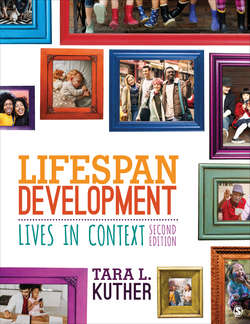Читать книгу Lifespan Development - Tara L. Kuther - Страница 375
На сайте Литреса книга снята с продажи.
Memory for Scripts
ОглавлениеYoung children remember familiar repeated everyday experiences, like the process of eating dinner, taking a bath, or going to nursery school or preschool, as scripts, or descriptions of what occurs in a particular situation. When young children begin to use scripts, they remember only the main details. A 3-year-old might describe a trip to a restaurant as follows: “You go in, eat, then pay.” These early scripts include only a few acts but usually are recalled in the correct order (Bauer, 1996). As children grow older and gain cognitive competence, scripts become more elaborate. Consider a 5-year-old child’s explanation of a trip to a restaurant: “You go in, you can sit at a booth or a table, then you tell the waitress what you want, you eat, if you want dessert, you can have some, then you go pay, and go home” (Hudson, Fivush, & Kuebli, 1992). Scripts are an organizational tool that help children understand and remember repeated events and help them to predict future events. However, scripts may inhibit memory for new details. For example, in one laboratory study, children were presented with a script of the same series of events repeated in order multiple times as well as a single alternative event. Preschoolers were less likely than older children to spontaneously recall and provide a detailed account of the event (Brubacher, Glisic, Roberts, & Powell, 2011).
This child demonstrates a script as she explains the process of going to a restaurant and ordering from a menu.
Inti St Clair/Blend/Newscom
